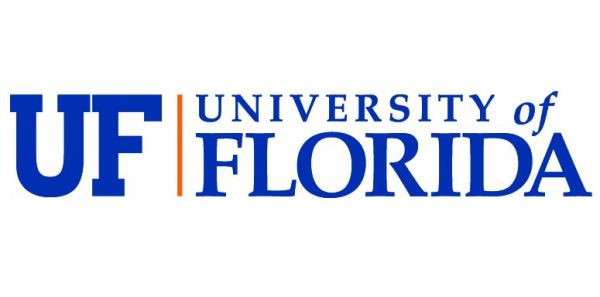
The University of Florida (UF) is offering free online course termed as “The Horse Course: Introduction to Basic Care and Management”. The aim of the course is to give you the knowledge about Basic Equine Physiology, Maintaining Equine Health of animals.
The Horse Course will cover many unique aspects of equine ownership and touch upon the science behind many of today’s management practices, it covers the many equine species inhabiting our globe and also covers some basic physiology.The course will start on 30 Jan 2017.
Course At A Glance
- Length: 6 Weeks
- Subject: The Horse Course: Introduction to Basic Care and Management
- Institution: University of Florida (UF)
- Languages: English
- Price: Free
- Certificate Available: Yes
- Session: The course will start on 30 January 2017.
Providers Details
The University of Florida (UF) is recognized nationally and internationally as a leader in academic excellence, both on campus and online. Ranked in the top 20 of Public Universities, the University of Florida is the state’s oldest university and has a long established tradition of academic excellence. The university is also integrated with retirement community Oak Hammock, where students can work, and complete internships in health sciences and fined mentors.
Requirements
There are no prerequisites anyone who loves horses and other equid animals can join this course.
About This Course
- There are over 100 million horses, donkeys and mules in the world today and owners of these animals can be found on almost every continent and in almost every society. The Horse Course will cover many unique aspects of equine ownership and touch upon the science behind many of today’s management practices. The course will also cover the estrous cycles of mares and Jennies. The language of the course is English.
- Everyone who owns or cares for horses should understand at least the basics of horse care and welfare. Correct horse care and welfare are essential to the well-being of a horse. Understanding horse behavior is a very important part of caring for horses. It is very easy to convince yourself that your horse is content to do all of the things that you enjoy, but a much better approach is to understand that your horse has very different needs to you.
How to Join This Course
For joining the course you can signup through the link given below: https://www.coursera.org/learn/horse-care?authMode=signup
Course Format
Week 1: Introduction to the Horse Course (7 videos, 1 reading, 1 reading)
They will cover the many equine species inhabiting our globe. Next, they jump into the history of horses and donkeys, touching upon how they have made such an impact on our own societal development. The second half of week 1 will cover the many breeds of horses and donkeys. It will finish up with a lecture on the equine hybrids.
Week 2: Basic Equine Physiology (10 videos, 1 reading, 1 reading).
This week will start out with covering some basic physiology. We will then advance into hoof anatomy and care. This will lead to spending a lecture discussing laminitis, a serious hoof condition in horses and other equids. The final two lectures will jump into the various coat colors and markings in horses
Week 3: Equine Behavior and Training (8 videos, 1 reading, 1 reading)
The topics this week will focus on equid behavior and movement. Understanding how equids relate to their environment and communicate is critical to training and management. They will start this week by examining the basic equine senses and communication. Then discuss normal and abnormal behaviors and the basic psychology used in training. This will finish the week discussing the basic gaits and how these animals move
Week 4: Feeding Management (8 videos, 1 reading,1 reading)
The topics this week will focus on equid nutrition. Understanding how and what to feed these animals is one of the most important aspects of basic care. We will start with digestive anatomy, how to evaluate your animal’s nutrient requirements, and then jump into feeding management. We will round out the week discussing colic and other nutritional disorders.
Week 5: Maintaining Equine Health (8 videos, 1 reading, 1 reading)
The topics this week will focus on equine health. Monitoring and taking care of your animal’s health is critical to owning any equid. The course will start off with the normal equine vital signs and then discuss administering first aid to your animals. It will then cover the different parasites and diseases that can afflict these animals. Finally, end the week discussing some common genetic disorders.
Week 6: Breeding Management (8 videos, 1 reading, 1 reading)
The topics this week will focus on equine reproduction. Breeding is an important component of the equine industry. Start off this week will with some basic anatomy, including what makes the equids unique. Then cover the estrous cycles of mares and jennies, followed by common breeding systems used throughout the world. After discussing unique aspects of equine pregnancy and parturition, the course will finish out the week covering some management tips for taking care of the newborn foal
Why Take This Course
- Advantage: This course will surely helpful to you know breeds of horses, basic equine physiology, nutrient requirements. With the help of the course, you know what the nutrient requirement of an equine is and what is the Components of an Equine Diet. This course will help you to know that how to maintain your Equine Health.
- Certificate: If you pay for this course, you will have access to all of the features and content you need to earn a Course Certificate
Learning Outcomes
- The course will give you some management tips and these tips will helpful to you for taking care of the newborn foal.
- After the course, you gain knowledge about Feeding Management how and what to feed these animals
- You will learn how to maintain equine health, Monitoring and taking care of your animal’s health are critical to owning any equid.
- In the course, you get knowledge about some basic anatomy, including what makes the equids unique.
Instructors
Chris Mortensen: Professor (Animal Sciences)
Suggested Reading
No basic knowledge is required for the course.
You Might Also Be Interested In
You can also join Paleontology: Ancient Marine Reptiles free online course.
Conclusion
- After accomplishing the course you have basic Equine Physiology, advance into hoof anatomy and care. You get knowledge about equid nutrition and understanding how and what to feed these animals is one of the most important aspects of basic care and other nutritional disorders.
- You can purchase a certificate you pay for the certificate and get your certificate, and share your success with friends, colleagues, and employers.
Detailed Information
For more information about the course, you can check the given link:
https://www.coursera.org/learn/horse-care


